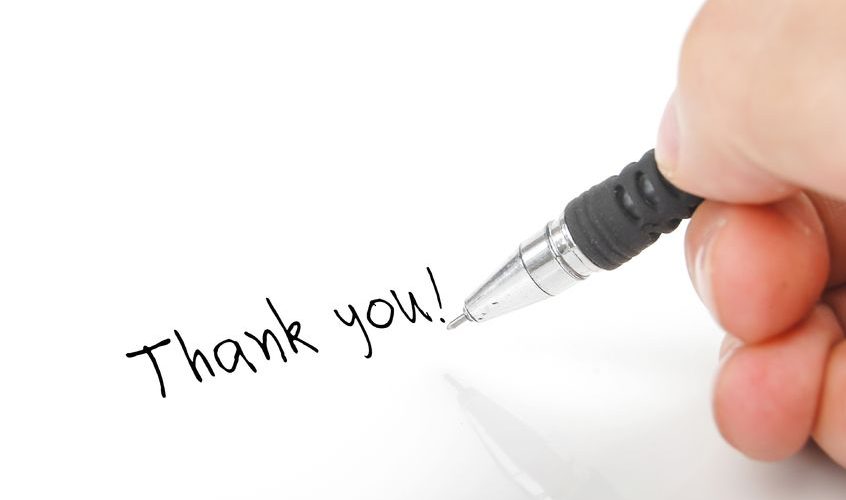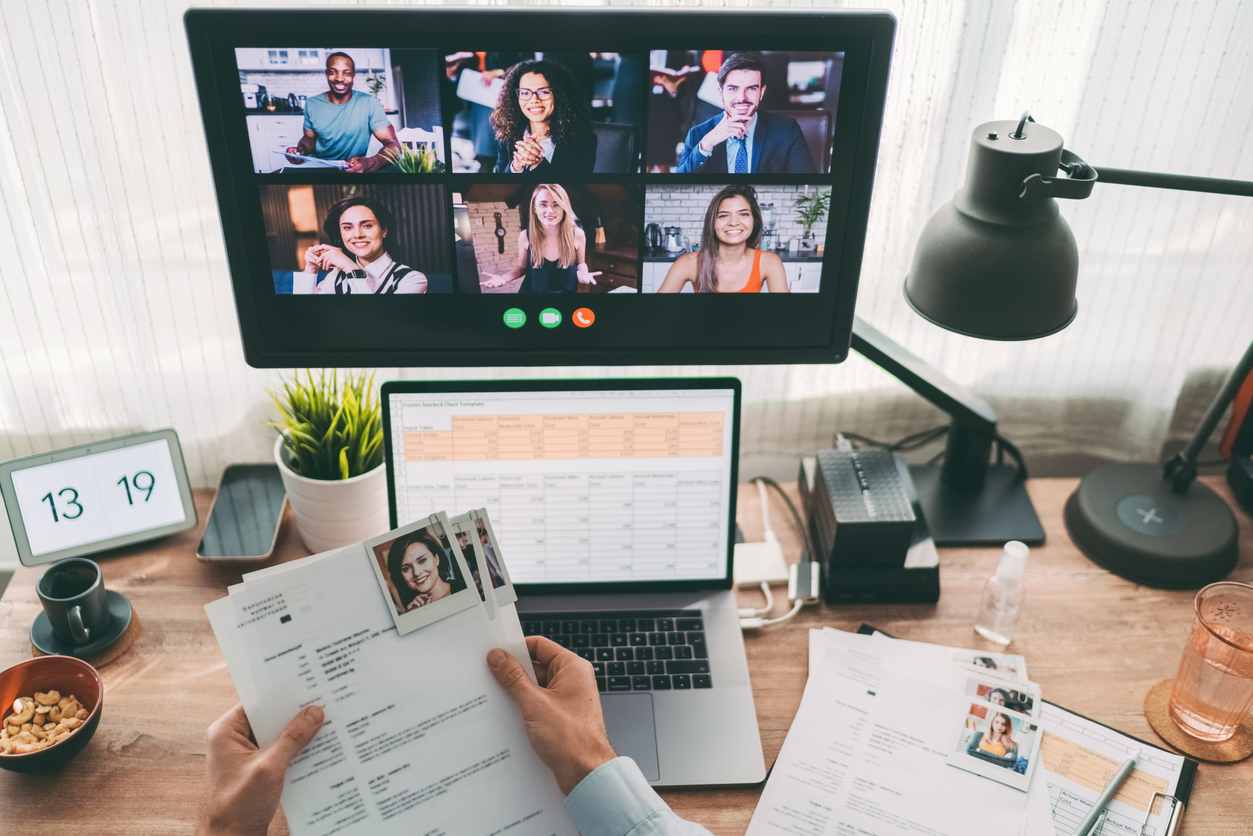It’s that time of the year when we are reminded to practice gratitude. While yes, it’s the time to show our appreciation for everything in our lives, both big and small, I’m going to take this opportunity to discuss something that jobseekers often forget — sending a well-written ‘thank you’ note after a job interview.
When it comes to this topic, a question I often hear is — “what’s the whole point of sending a post-interview thank-you note, especially when you’re not sure you’ve bagged the job?” Frankly, a thank-you note has nothing to do with whether you nailed the interview or not. While a thank-you note can’t change a hiring decision, it can always improve your chances of making an impact. It can contribute to the hiring manager’s impression of you while it’s still fresh in his or her mind. And because most candidates don’t bother sending well-written thank-you’s, your chances of standing out increases reasonably.
On the other hand, not writing a thank-you note after an interview often reflects poorly on the candidate, especially because many hiring managers consider it a positive sign. According to Steve Langerud, a workplace consultant and director of professional opportunities at DePauw University, “Not sending a thank you says, ‘I just don’t care.’”
Of course, there are other reasons why not sending a thank-you note is never a good idea but I’m not going into the depths of discussing those reasons. In this post, I’m going to focus on one thing that’s worse than not sending a thank-you note — sending a weak and impersonal thank-you note. It takes away much of the significance of the gesture and worse, conveys that you don’t consider the interviewers important enough to invest time in writing a personalized note. That you’re simply ticking a “thank you” off your list.
So how do you know if your thank-you note is not up to the mark? Well, if it reads something like this — “Hi X, thank you for taking the time to speak/meet with me today. I would like to reiterate my interest and I look forward to your feedback” — then you’re doing a poor job of expressing your interest.
Here’s how you can up your game with strong thank-you messages.
Start planning your thank-you note during the interview. This is a great first step towards crafting a thank-you note that doesn’t sound generic and has a personal touch. Take notes on important topics you covered during the interview, any important answers to questions you asked the interviewer, any specific things that makes their brand stand out over its competitors, and the skill sets they put emphasis on. These pointers could help you create a thank-you note that does more than express gratitude.
Use this as an opportunity to reinforce your interest. Don’t make the mistake of thinking of it as merely a note of thanks. Honestly, most interviewers don’t really care if you thank them for the interview. Instead, they’re looking for that extra effort you’re putting in the way of building on the interview. A great note should include what you, as a candidate, can offer in addition to what was discussed. A thank-you note is a good place to share a link to your portfolio, if you have one or you haven’t shared it earlier.
Incorporate something unique into your thank you note. Authenticity and personalization is key to writing successful thank-you notes. To this end, you should make the reader feel it’s written with him/her in mind. You could address a concern the interviewer may have brought up during the interview or may be, mention a key point you may have made during the course of the interview or make a light comment on a question you may have found interesting, and so on. The point is to make your note sound as natural and honest as possible. A copy-pasted or canned note not only sounds fake and forced but could even ruin your chances.
Should you include a “call to action” in your thank you note or a strong close?
If you ask me, I would not suggest trying to close on your thank-you note. Closing is better handled in person or on the phone. You never know how someone is going to perceive a written message. You should ideally end your thank-you note by reiterating your interest and stating that you look forward to hearing from them soon.
To email or send a handwritten note?
This one’s a common question and adding to the confusion, some people even recommend sending both, so what should you do? First of all, let me get one thing out of the way — dropping a thank-you email within 24 hours of the interview is something I would call mandatory. If you’re planning to write a thank-you note to be sent via mail, which is a great, the ideal time-to-wait is 1-2 days.
While these days, a thank-you email works just fine, there are some hiring managers who appreciate the extra effort that goes into a handwritten note. One of the hiring managers I know receives emails from candidates he meets with in-person almost 90% of the time. He says, “I feel as though if candidates do not follow up or send a thank you note is when I believe has the most impact. I have received thank you cards from both candidates who were successful and we did hire, as well as candidates we did not move forward with which is very nice and I think hand written notes go a long way.”
So yes, if a hiring manager is the type who might appreciate a handwritten gesture, sending them one could certainly earn you some brownie points against other candidates. In most cases, however, an email will suffice.
But the bottom line is, whether you’re sending a handwritten note or not, a thank-you email within 24 hour of interviewing is absolutely necessary, and the earlier the better (though, don’t rush it so you don’t end up sending a half-baked email).
So how does a compelling thank-you note look like?
If you’re wondering what a thank-you note should ideally look like, here’s a sample note based on some of the best ones I’ve seen in my career as a recruiter.
“Hi David,
Thank you for taking the time to speak with me today. I appreciate your thorough explanation on what it would take to succeed in this position by accomplishing [the job responsibilities] and the overview of the company’s culture. As we discussed, I have succeeded in [reiterate past accomplishments] in the past and I feel my technical background is a strong fit for your opportunity. I especially enjoyed learning more about [something unique/ personal from the conversation].
It was great meeting with you and your awesome team. Thanks again for your time and I look forward to your feedback.”
So there you have it — great thank-you notes are the ones that are honest. Staying sincere and simple is the best way to go!







